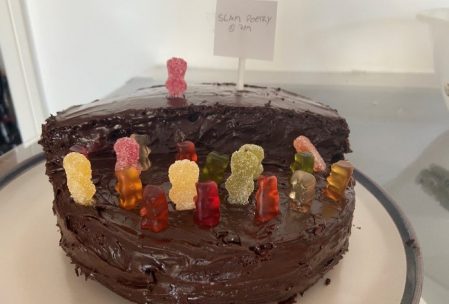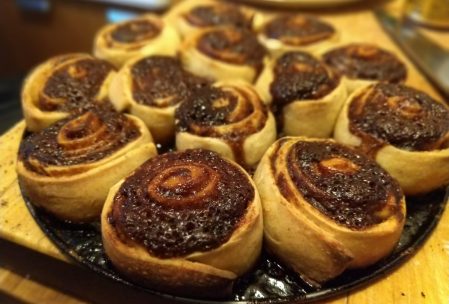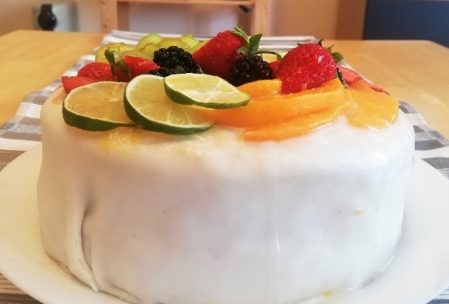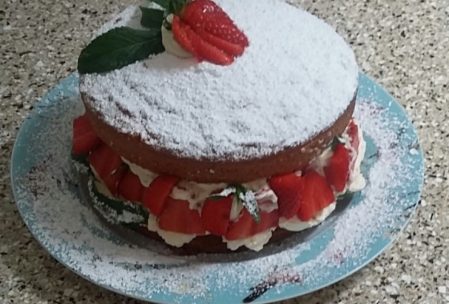Loughborough University London Bake Your Thesis competition 2020– the results!
Despite national flour shortages some of our intrepid Loughborough University London PhD students have taken a break from the books to express their PhD through the art of baking as part of the ‘Bake your PhD’ competition.
The judges, who were of course torturously unable to taste the creations, have deliberated. The competition was fierce. They decided that all of the following four entries will all be receiving a prize:

Erica Fletcher: My research explores contemporary performed poetry communities and will seek to understand how poets and poetry event organisers use digital media to enhance community creation and maintenance. Performed poetry communities are often presented as inclusive spaces, and my research aims to understand whether these communities are inclusive and how this impacts the formation and development of them.
I’ve reflected the contemporary performed poetry community by baking a scene featuring a stage with a performing poet and an audience. Inclusivity is represented in my bake by the diverse gummy sweets both in their type, sour patch kids and gummy bears, and colour. My research will explore the role digital media has in this community, as represented by viewing the cake through a (make-shift) computer screen.
Judges: This decadent chocolate cake offered a 3D scene of a poetry slam, including using a diverse group of gummies as the audience and a ‘screen’ to signal the digital dimension. The judges were impressed with the clarity of the illustration of the field of research through the medium of a cake, especially the use of a diversity of gummies, in Erica’s design. “The view with the keyboard and mock screen emphasising the focus on the role of digital media works brilliantly.”

Talia Hussain: My research is about how to facilitate networks for materials and goods in a circular economy, hence my circle of cinnamon swirls!
Judges: Deserving pride of place in a Swedish bakery, Talia’s cinnamon buns make use of the circular ‘swirl’ as a reference to the circular economy. The judges loved Talia’s short and simple description, but with a very clear and strong concept being communicated. They commented that “This is a great way to illustrate networks and the concept of circularity.”

Mabel Machado:
This cake illustrates some of the transformations that are taking place in Cuba’s capital, Havana, with the “controlled” liberalisation of the private sector, which is one of the most radical reforms introduced with the “realignment” of the socialist system in the island a decade ago.
The city’s infrastructure, history and formal institutions constitute the base of the cake. The fruits are the entrepreneurial assemblages that have emerged during the economic transition in the city. Different urban configurations are represented by the combination of colours and flavours that are part of Cuban imagery and culinary traditions (lemon, lime, mango) with others that are rarely found in the island or are imported mainly for consumption in the tourism sector (grapes raspberries, strawberries). The three sections at the top of the cake represent the spatial distribution of the private sector across Havana.
Judges: This ‘Mixed fruits and flavours of Havana’ cake shows off a tantalising splash of different tropical and temperate fruits. The judges agreed that this cake was ‘brilliant’ and loved the symbolism of fruit to represent some of the concepts being explored in the thesis “Such an interesting use of the different ‘classes’ of fruit to illustrate demarcations, including physical, economic, and tradition vs innovation.”

(Best PhD Cake in Show)
Best PhD Cake in Show – Laura Bradshaw: My PhD cake bake entry represents my research on ‘A Phenomenological Study of Organisational Innovation in Elite Sport’ which was carried out at multiple organisations around the world.
The cake represents the findings of my research which revealed that innovation is often messy, sometimes uncomfortable and there is a real need to embrace the fear of public failure to learn lessons for more successful iterations. The strawberries represent the colourful ideas that come from ideation, innovation and invention and the mint leaves represent how innovation often emerges as green shoots which need to be nurtured in an organisational setting. The cream represents the overflow of ideas, creation and connection that enables innovation to happen. The original idea for the cake bake was to create an iced cake but actually, the findings revealed innovation in organisations cannot simply be just icing over the cracks to make the organisation look good externally. The most successful innovation was found to be organic, homemade innovation, that nurtured green shoots and enabled opportunities for creativity to flow. By embracing the messiness, fear of public failure and learning from past mistakes, organisations found that further iterations could be carried out with very successful results.
Judges: In the end, this simply gorgeous Victoria sponge replete with clever metaphor exploring the ‘messiness’ of the processes won the judges over. They said, “this is a really superb way of illustrating the key findings from the research. Who would have thought you could get such complex ideas across by talking about strawberries, mint leaves, and cream!”
Well done PhD bakers – you will all receive your tub of PhD Smart Butter – the most important secret ingredient in every PhD!
To find out more about our Doctoral Researcher community, please see our website.
Loughborough University London
Blogging everything that’s happening at Loughborough University London